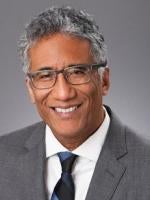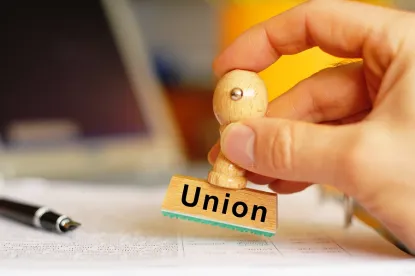Why This Matters
In June, the National Labor Relations Board (“NLRB”) overturned a nearly 38-year old precedent when it ruled that employers may deny nonemployee union representatives access to areas of their property open to the public, like cafeterias or restaurants, when the union representatives are there to solicit for or promote union membership. In this ruling, the NLRB overruled its previous decisions that had recognized a “public space” exception under which employers were required to permit non-employee union organizers to engage in union activity in public cafeterias or restaurants if the organizers used the facility in a manner consistent with its intended use and were not disruptive.
Background
Two nonemployee union representatives entered the cafeteria located within the University of Pittsburgh Medical Center (“UPMC”) and met with a group of employees. The representatives ate lunch with the employees and discussed union campaign matters. Union flyers and pins were displayed on the tables at which the union representatives were sitting. UPMC’s security manager told the union representatives that they had to leave because the cafeteria was only for the use of patients, their families and visitors, and employees. When the representatives refused to leave, the security manager called the police, who escorted the union representatives from the premises.
Approximately one month after the incident, the security manager received reports that two individuals were distributing literature in front of the cafeteria. Those individuals were escorted from the property. The union filed unfair labor practice charges against the employer based on the “public space” exception to the employer’s right to exclude third persons from its property. The employer’s right to exclude third persons from engaging in union activity on its property stems from a 1956 Supreme Court case, NLRB v. Babcock & Wilcox Co. In that case, the Court ruled that “an employer may validly post his property against nonemployee distribution of union literature” if the union has other available channels of communication to reach employees, and provided that the employer’s actions in prohibiting distribution of literature by nonemployees was based on an across-the-board rule that did not discriminate because of union activity. Over the years, the NLRB generally has applied the Babcock standard, but created the “public space” exception under which employers were required to permit nonemployee union organizers to gain access to a portion of an employer’s private property that is open to the public, such as a cafeteria or restaurant, if the organizers use the facility in a manner consistent with its intended use and are not disruptive.
As a result of the NLRB’s recent decision to overrule the “public space” exception, employers now can decide what types of activities, if any, they will allow by nonemployees on private property, absent discrimination between nonemployee union representatives and other nonemployees. This new standard will apply retroactively.
While the NLRB’s decision in the UPMC case generally can be considered a favorable one for management-side lawyers and their employer clients, employers in California should remain cautious about the reach of this decision. In contrast to other states, California generally has adopted more expansive rights regarding where individuals may conduct expressive activities under the California constitution. Those rights extend to certain types of speech and communications on private property, even if the federal constitution might not afford these same rights to property owners. Therefore, California employers should not assume that the NLRB’s recent decision categorically permits employers to exclude union organizers in all instances from coming onto the employer’s property to discuss union matters or labor disputes. Before acting to exclude such persons from the employer’s property, we strongly encourage employers to consult with experienced labor counsel.




 />i
/>i

